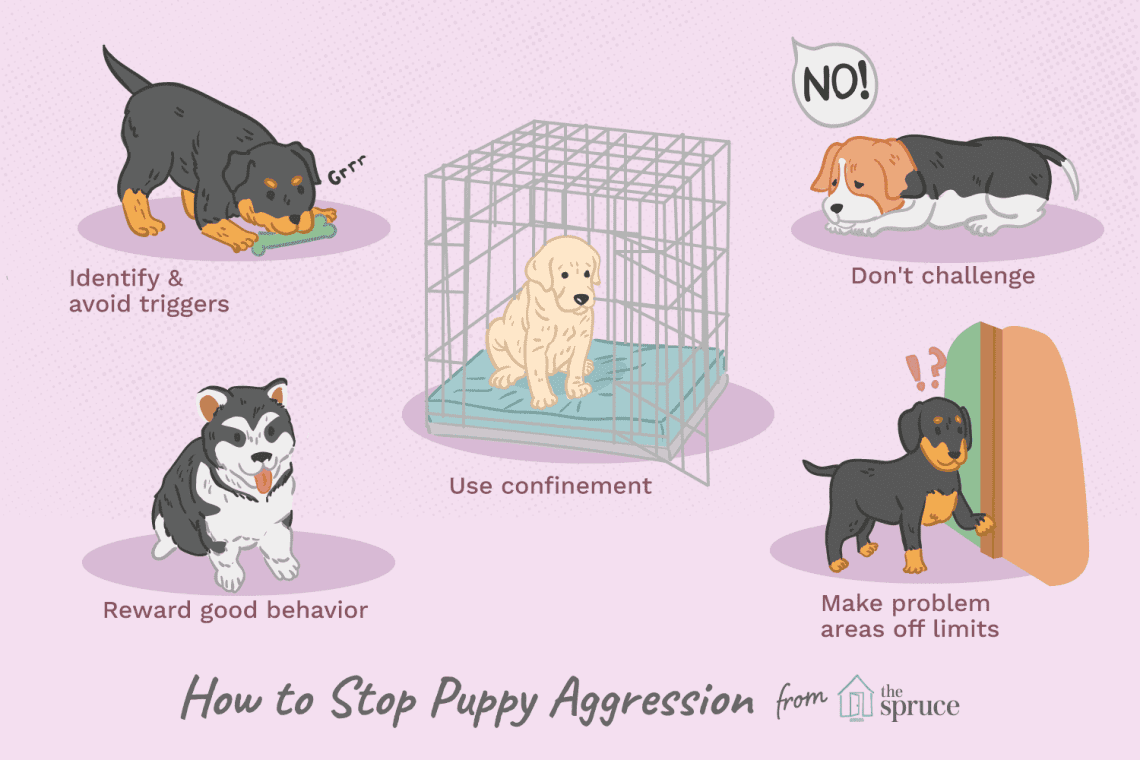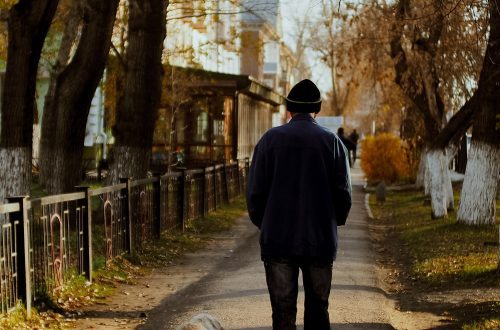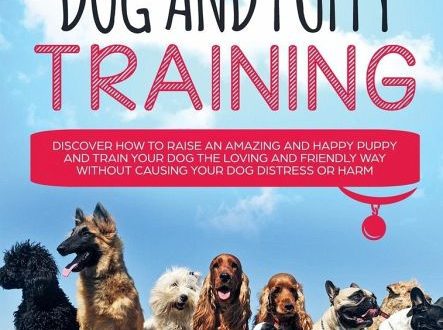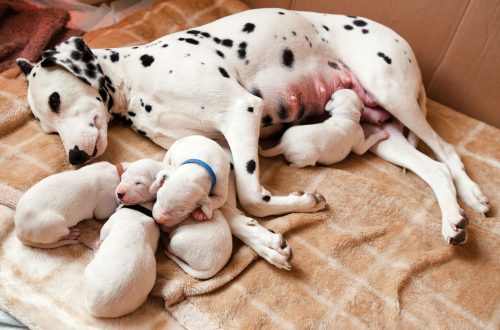
How to stop your puppy’s aggressive behavior
Contents
Don’t let your puppy turn into an aggressive dog
Many people believe that dogs bite because “they’re made for it.” But a dog does not become aggressive without a good reason. Most dogs show signs of aggression when they are stressed. Therefore, in order to prevent your puppy from growing up angry or aggressive, avoid stressful situations or teach your pet to calmly endure them. You need to be able to see the signs of fear in your puppy when, for example, he hides in a corner or pulls on the leash.
Fear is common
A dog does not have to have any negative experience to be afraid. Dogs become intimidated if they don’t have the opportunity to socialize with enough people. If your puppy gets used to seeing people (adults and children) as a source of fun, praise and treats, they will no longer be a threat to him.
You also need to get your puppy used to sounds and situations that might frighten him when he is little, and thus help him overcome those fears. Then potentially frightening things like a vacuum cleaner, traffic, or the postman become part of everyday life.
Your puppy and other people
People come in all shapes and sizes—friends, family members, and strangers—of different ages, builds, and sizes—it’s easy for your puppy to get confused. Your puppy needs to learn all of them, and the sooner the better. Then people will not seem so unfamiliar, and the puppy will soon learn to behave more calmly and trust. Just make sure that they do not scare him with their close attention.
It is important that your puppy gets to know the children as well. Few children can resist petting and playing with a puppy, and they don’t want to hurt him at all, but it can be exciting for a puppy. For example, you can take your puppy for a walk near the school. Children do not need to be persuaded – they themselves will be happy to mess with your pet. But do not forget that puppies get tired quickly, so make sure that meetings with strangers are short and give your puppy the opportunity to rest.
Don’t let your puppy bite while playing.
Before you take your puppy home, he has been playing with his siblings and biting is a natural part of his play. In the new home, he will continue to bite, so you need to learn ways to help correct the puppy’s behavior. The most important thing is to divert the attention of the baby from your hands and switch to toys.
Whenever you play with your puppy, caress and pat him, there comes a time when he wants to taste your hand. So always keep one of his toys ready. Make it difficult for him to bite your hand (for example, by clenching it into a fist) and offer a toy in return by waving it in front of his nose. Your puppy will soon realize that it is much more convenient and more fun to play with a toy than with your fist.
Your puppy only knows what you taught him.
It is important to remember that whatever you teach your puppy now will be part of his normal behavior in the future. So when you play with your puppy, try to think of him as an adult dog and evaluate whether his behavior is acceptable or not. If during the game he starts to growl, tries to bite the hand holding the toy, or chases the child, immediately stop the game and leave, taking the toy. He will soon understand why the fun is over and will henceforth avoid the behavior that caused such a reaction.
If you have any concerns about your puppy’s behavior or need more information on the subject, courses and training schools, contact your veterinarian – he will be happy to help you.





